I’m adopted: guide for young people
This guide is aimed at answering questions you may have about being adopted.
You can also find more information on our website or by contacting our friendly team or calling us on 0345 155 1076.
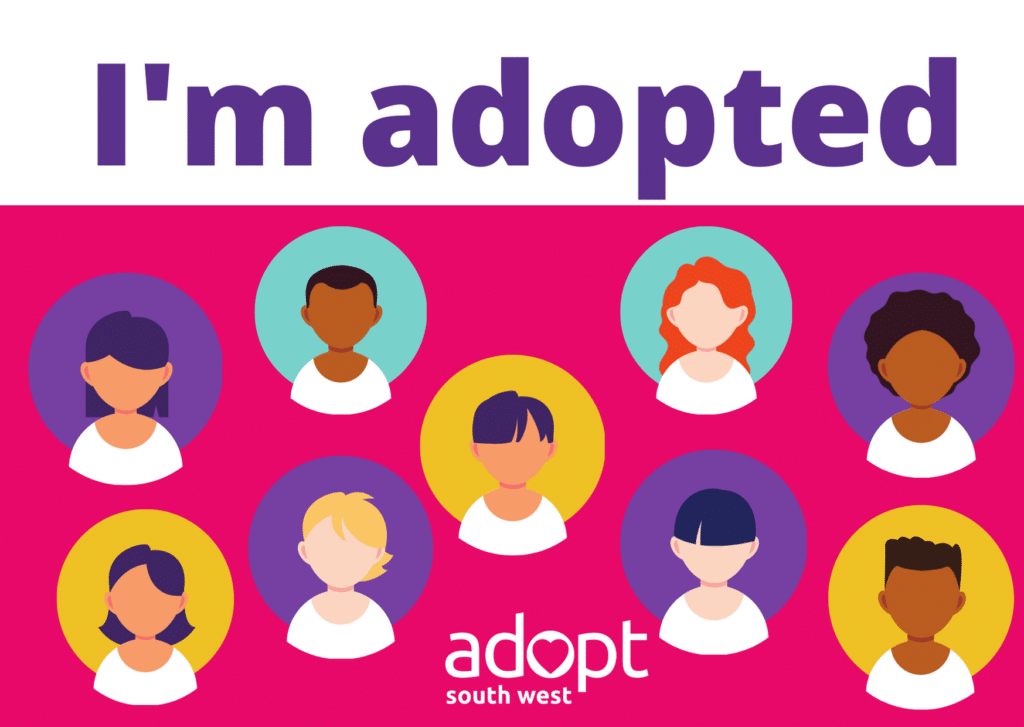
- 1. I have questions about being adopted
As a person who is adopted, you may have lots of questions about your birth family, and about why you were adopted. We are here to help by answering your questions.
You might also find some answers about you and your adoption
- in your Life Story Book
- in your Later Life Letter (this is a letter written to you by your social worker explaining your journey to adoption in a more detailed way. This letter is given to your parent/s to share with you at a time when you will be able to understand and manage the information in it; this is usually when you are a teenager)
- by talking to your parent/s
- by talking to someone from the Adopt South West adoption team.
- 2. Why was I adopted?
- It could be that your birth parents felt they weren’t able to parent a baby and asked the social workers to find an adoptive home for their baby. This is when we call it relinquishing their baby or child. Lots of support would have been offered to them to make sure they were making the right decision.
- Or, it could be that professionals were worried about you and whether your birth parents could keep you safe, because professionals continued to be worried about your safety and wellbeing, they decided that adoption was the best way of keeping you safe.
There are lots of reasons why a child is adopted, but it is usually because things have been difficult and unsafe for them in their birth family.
There are lots of different reasons why birth parents cannot care for a child. For example, your birth parents may have been unable to look after you properly due to learning difficulties, domestic abuse, mental health problems, or drug or alcohol use. Usually, birth parents have experienced unsafe parenting themselves which has made it even harder for them to be able to parent safely.
Children are usually only adopted when everyone agrees that they are not being looked after properly, or are not safe living with their birth family. Your birth parents will have been offered support and lots of assessments would have been completed by professionals to fully understand the difficulties your parents would have had in keeping you safe.
We know that sometimes young people wonder if they could have changed things if they had done something differently, for example many young people wonder if they had behaved in a certain way when living with their birth family then things would be different. Lots of support would have been offered to your birth parent/s but sadly, due to their own life experiences and situation they were unable to make the changes needed to parent you safely.
These thoughts and feelings are natural and many adopted people have them, but there is nothing you could have done to change the situation.
At Adopt South West, we have adoption workers who will be happy to meet you and help you understand these difficult feelings. They can see you individually or with your parent/s, whichever you would like best.
We also run groups for young people who are adopted. You don’t have to talk about yourself in front of everyone; you can just spend time with other people who have been through similar experiences to you.
- 3. Who decided that I would be adopted?
When a child is relinquished, the social workers need to attend an adoption panel to seek a recommendation as to whether this is the right decision for a child. Legal advice is also sought to make sure there are no other birth family members that should have been asked to care for the child.
A number of professionals would have been involved in supporting your birth parents and in making the decisions relating to your care. These would have included social workers, family support practitioners, teachers, nursery workers, medical professionals (health visitors, midwives) and specialist workers such as drug and alcohol support workers or mental health support workers. They would have worked with your birth family to try and help them learn how to parent you safely and make things work, so that you could grow up with them.
When things didn’t get better for your situation and there were still concerns over your care, your social worker and everyone involved in helping you and your birth family talked things over and decided that it would be best for you to be adopted.
A judge at a specialist Family Court will have looked at all the information and listened to everyone involved, including your birth family, and then made the decision that you would be safest with a new, adoptive family.
- 4. How were my parents chosen to be adopters?
At Adopt South West, the adoption team know the individuals and couples who want to become parents through adoption. They understand that it takes a lot of work and understanding becoming parents, especially in acknowledging what you may have experienced when living with your birth family, and the loss you may have felt being separated from them.
Your parent/s had to complete assessments and training and were asked lots of personal questions about their lives. Family and friends were asked to tell us what they thought about your parent/s becoming adopters. All of this helped us to decide whether they should adopt. It’s a long process that takes months.
Once it was decided that your parent/s could become adopters they then met with the adoption team and your social worker to find out about you, your personality, your birth family and your life experiences.
Your parent/s then met with the adoption panel, which is a group of people who have a good understanding of adoption and what it means for children and adopters. The panel then asked your parent/s and your social worker lots of questions to make sure that they would be the right parent/s for you, and also to make sure that they could love you, and care for you, and keep you safe.
While all these decisions were happening, you would have been living with a foster family. You should have information about your foster family in your Life Story Book and from your parent/s.
When you moved in with your family it may have been hard for you to understand why you were leaving your foster carers, and why you had to say goodbye to your birth family, and you may still feel upset about this. Through discussions with your parent/s about your adoption you should understand that none of the reasons why you were adopted were your fault.
- 5. How do I find out more about my birth family?
You should have a Life Story Book and Later Life Letter:
- Your Life Story Book is an account that lets you explore and understand your early life history. You would have had the book since you were little and it tells a simple version of your journey and basic information about your birth family.
- Your Later Life Letter was written by your social worker when you were adopted. The letter helps to explain why you needed a new family and why you couldn’t stay with your birth family. Your parent/s will be able to share this with you.
You should also speak to your parent/s – they may have more information to discuss with you when you feel ready.
However, not everyone has a Later Life Letter, and your parent/s may find it hard to explain why you were adopted.
- 6. Can I see my adoption records?
You can always access your adoption records and childcare records. We understand the importance of these documents and we keep them for 100 years, safely and securely so they are available to look at when you feel you are ready.
If you are under 18 years old we will need your parent/s’ permission. You may know most of the information already, but some things can be upsetting, so it’s important you have support around you. We can help you with this.
You may also have a Letterbox file. This is where your parent/s write every year or so to your birth family to let them know how you are getting on, and the birth family can write back. If you don’t know about your own Letterbox contact you can either ask your parent/s or any of the team at Adopt South West.
Addresses are never shared with you or your birth family. The Letterbox Service is confidential so you don’t need to worry about your address being shared. We ensure that it is safe for everyone to have contact.
We can help you write a letter to your birth family, and, if we are still in touch with them, we can help them to reply.
- 7. Can I meet my birth family?
A lot of young people want to trace their birth family and meet them again. This may be possible, but it is much better if you are able to understand the reasons you were adopted before you try to do this. Again, this is where we can help you.
You might want to know what your birth parents look like, see their gestures and mannerisms, or hear their voice. A lot of these things are genetic, and some people want to see what they’ve inherited.
We know that there are lots of reasons why you may want to meet your birth parents, this may be because you are worried about them, curious to understand why things happened, and feel that it will help understand where you came from. Sometimes it may be because you aren’t getting along with your parent/s and we understand this; we want to support you in meeting your birth family in a way that is positive and safe for all of you.
Of course not everyone wants to do this. You might just want to find out the reasons you were adopted, and why you couldn’t live with your birth family and that’s okay too.
We are here to help you understand your life story and try to answer any questions you have about your adoption, parent/s and birth parents and family.
- 8. Help and advice
You can contact us anytime by emailing adoptsouthwest@devon.gov.uk
Or call our friendly team on 0345 155 1076 Monday to Friday 9am to 1pm.
- RIO is a group for young people aged between 13-17 years old, who are adopted or living with a special guardian. It’s a safe, it’s a fun, safe and inclusive space where we can offer you activities, support and friendship. The group bond over football, build relationships while having a game of pool, plan activities and talk a lot about what food to have at future sessions! Please email adoptsouthwestsupport@devon.gov.uk for more information.
There are other organisations you can speak to for advice:
- Adoptables The Adoptables is a peer network of adopted young people sharing views about life, school and home. They have a YouTube channel and a Facebook group.
- CEOP for help with online abuse. The Child Exploitation and Online Protection (CEOP) Command help children and young people stay safe online. If anybody acts inappropriately towards you or another child or young person online (such as sexual chat, or being asked to do something that makes you feel uncomfortable) you can report it here.
- Childline 0800 1111 If you’re under 19, you can call Childline every day from 7.30am until 3.30am and speak to an individual worker who will listen and advise. Also find them on Facebook and Instagram, and they have a YouTube channel.
- Kooth A mental wellbeing organisation. The Kooth team provide free, safe and anonymous online support and counselling. The whole team are is made up of friendly and experienced individuals who want to help you.
- NHSmental health services are free on the NHS. To get urgent medical help, use the NHS 111 online service, or call 111 if you’re unable to get help online. For life-threatening emergencies, call 999 for an ambulance.
- Samaritans You can access confidential emotional support at any time from Samaritans either by calling 116 123 or emailing jo@samaritans.org.
- Shout 24/7 text service, free on all major mobile networks, for anyone in crisis anytime, anywhere. It’s a place to go if you’re struggling to cope and you need immediate help. Text 85258.

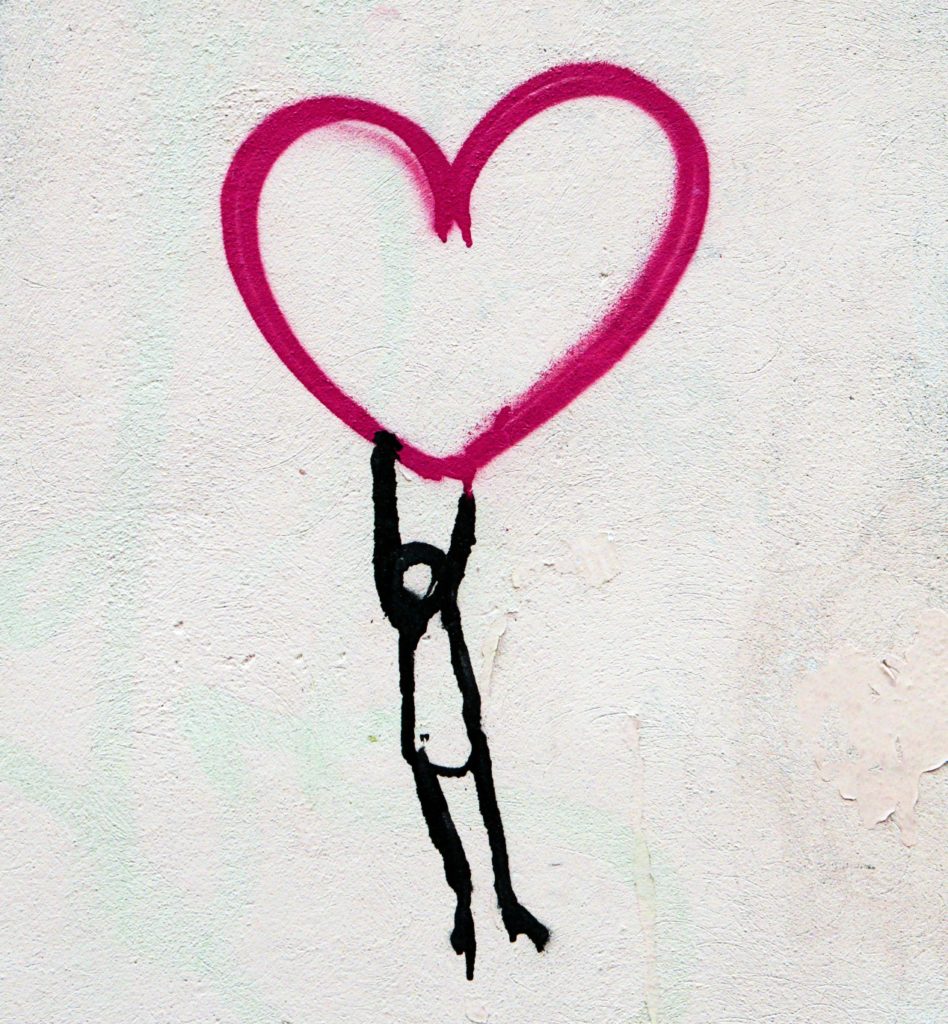
 When a child is relinquished, the social workers need to attend an adoption panel to seek a recommendation as to whether this is the right decision for a child. Legal advice is also sought to make sure there are no other birth family members that should have been asked to care for the child.
When a child is relinquished, the social workers need to attend an adoption panel to seek a recommendation as to whether this is the right decision for a child. Legal advice is also sought to make sure there are no other birth family members that should have been asked to care for the child.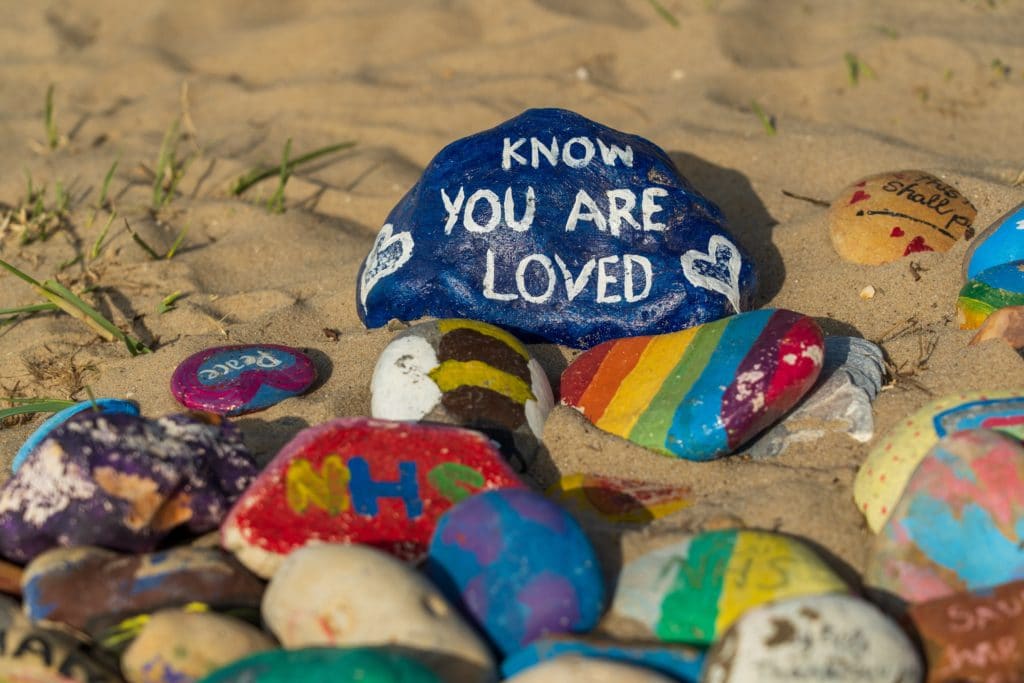 At Adopt South West, the adoption team know the individuals and couples who want to become parents through adoption. They understand that it takes a lot of work and understanding becoming parents, especially in acknowledging what you may have experienced when living with your birth family, and the loss you may have felt being separated from them.
At Adopt South West, the adoption team know the individuals and couples who want to become parents through adoption. They understand that it takes a lot of work and understanding becoming parents, especially in acknowledging what you may have experienced when living with your birth family, and the loss you may have felt being separated from them.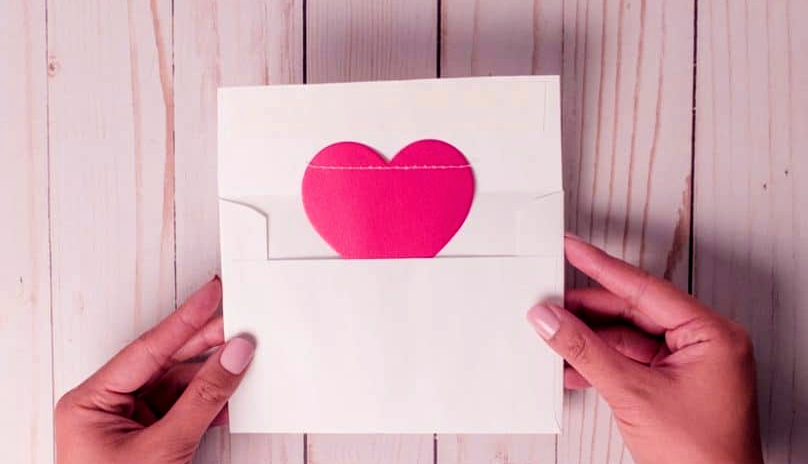
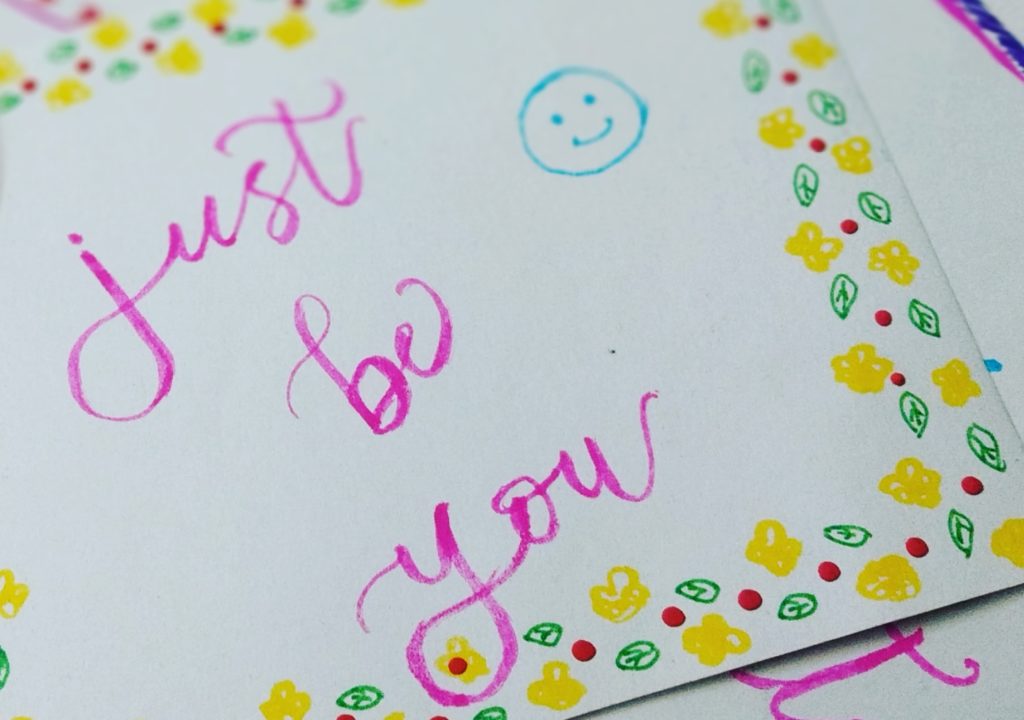 You can always access your adoption records and childcare records. We understand the importance of these documents and we keep them for 100 years, safely and securely so they are available to look at when you feel you are ready.
You can always access your adoption records and childcare records. We understand the importance of these documents and we keep them for 100 years, safely and securely so they are available to look at when you feel you are ready.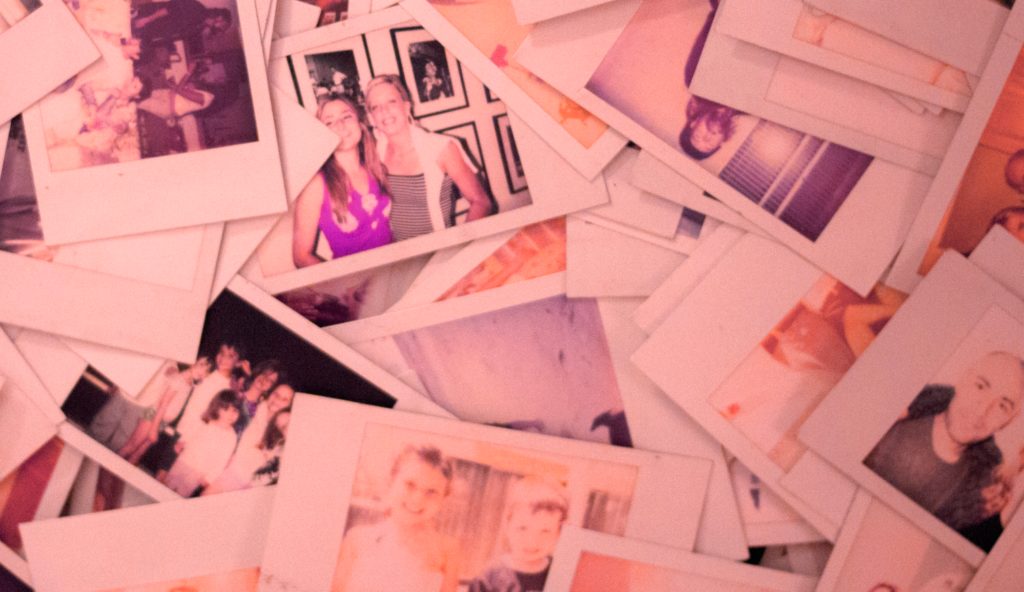
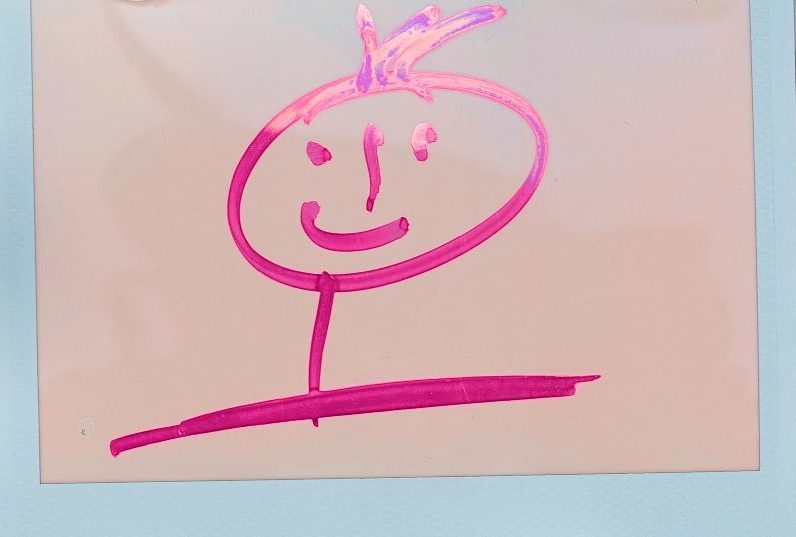 You can contact us anytime by
You can contact us anytime by